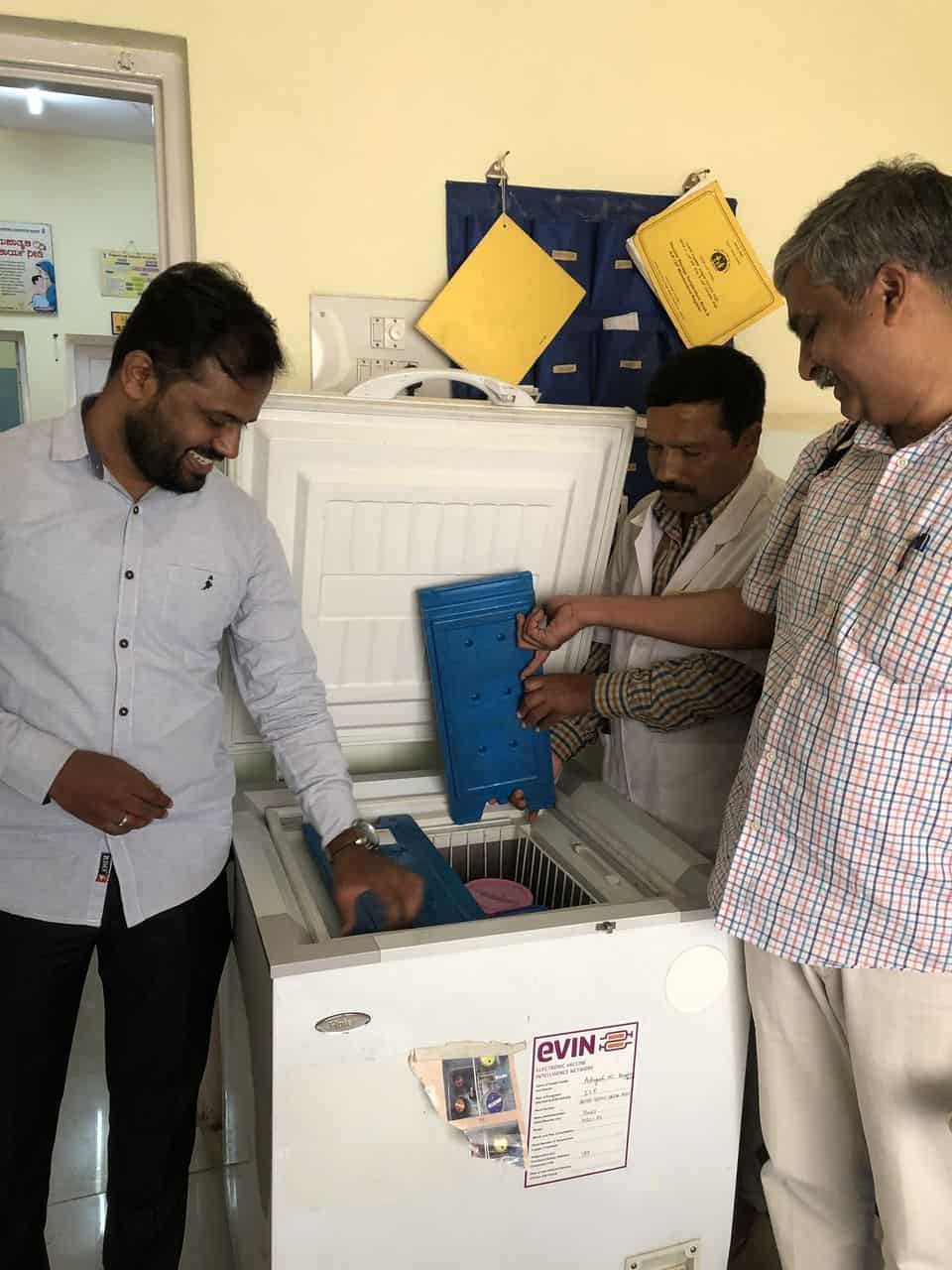By Harriet Lamb, Ashden CEO
Visiting winners and finalists of Ashden Awards, past and present, I travelled to the dusty villages of Rajasthan and Karnataka to see Frontier Markets and Karuna Trust.
The dynamic Salumni Beguma, who has been a ‘Solar Saheli’ salesperson since 2017, tells me how the heat hits people’s health: people get more food poisoning (as the food goes off more quickly and no-one has fridges), of diarrhea, breathing problems, and sickness.
‘The weather’ she says, ‘has gone haywire. People say the gods cannot decide what to do!’ With the vegetables in her small garden shriveling, she is well aware of the causes of the rising heat – and of the solutions that solar power offers. ‘I’ve brought a lot of change in the village. Lots of people have realised the importance of solar now. When I started it was very challenging. You’ve got to explain it to them.’
One of the benefits of the cheaper, more reliable renewable energy is running a fan to keep cool. On a larger scale, electric vehicles can help bring down rates of asthma and other respiratory diseases caused by runaway pollution. Visiting health centres in Bangalore, respiratory diseases came up again and again as among the top three health problems.
Healthcare centres are increasingly seeing the benefits of sustainable energy – such as those run by Karuna Trust. Karuna Trust has pioneered a highly successful Public-Private-Partnership, taking on the running of public health care infrastructure for the under-served and the poor in remote areas. Karuna Trust currently manages 69 Primary Healthcare Centres (PHCs) in five states, serving up to 1.5 million people.

I visited one of their centres in Iduguru, rural Karnataka where the pharmacist was told me how previously they went 5-6 hours every day without power, which was a constant hassle to protect the temperature of vaccines in fridges. They had to rely on back up diesel generators that are loud, expensive and polluting. In fact, the electricity goes out so often that the Government insists all health centres fill out a daily record in the ‘Vaccines Storage Temperature Book’. The pharmacist is proud to show me how, since they installed solar panels, their record shows a consistent, daily ‘zero’ for number of hours without power.
It’s the consistency and reliability of the solar panels that is the biggest gain, mentioned again and again by health centre staff. They know now that if they are called to an emergency operation in the middle of the night – a baby delivery or a scorpion bite – there’s no need to worry about the power cutting out.
What’s more of course, it’s a straight financial win. Karuna Trust initially linked up with the Selco Foundation (a previous Ashden winner) who with IKEA Foundation funds was able to install solar panels on 19 of their health centres and train the centre staff in maintenance. Now, the health centres are saving on their energy bills, money that is sorely needed for improving the level of care.
Even if they had to pay for the initial installation, as the costs of solar equipment plummet, the energy bill savings would soon leave all health centres better off with solar.
Karuna Trust is a deeply decentralised model of healthcare, believing strongly in local teams working on outreach in local communities, taking educational and public health approaches to preventing illness. They see a natural fit between decentralised, sustainable and affordable energy and health, and believe that we need to de-mystify solar energy and empower local communities to take it on themselves. In this, the health-centres can play a leadership role in ensuring the transition to sustainable energy is a just one.
All of which is leading Karuna Trust to consider energy as a determination of health and to reflect on how sustainable energy could be scaled within the sector. They are keen to switch all their health centres to solar and are encouraging the Government to scale solar for healthcare centres across the board. If we are going to make the necessary shifts to decarbonise in time, these are just the new approaches that are needed – positioning renewable energy as a straight benefit because it offers a means to improved healthcare.


